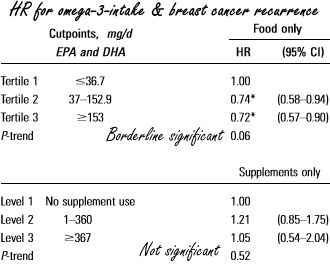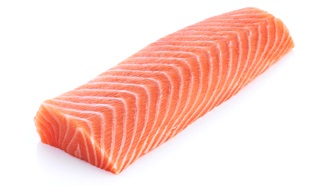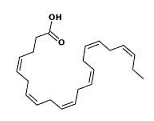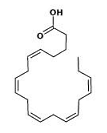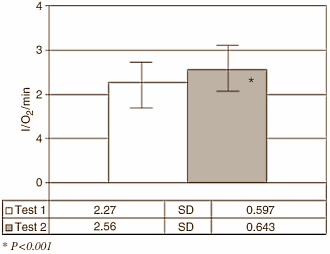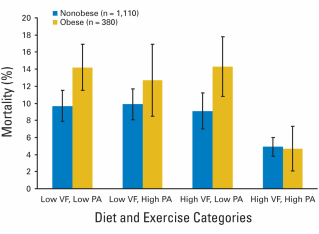|
Definition: "An ergogenic aid is any substance or phenomenon that enhances performance "
|
|
||||||||
26.07.2017 |
|
|
Salmon, mackerel and other oily fish improve post-breast cancer chances
Women who have survived breast cancer can reduce their chances of a recurrence by eating salmon, mackerel or other oily fish twice a week, report researchers at the University of California at San Diego in the Journal of Nutrition. Oily fish also reduces their chances of dying.
Study
Results
Fish fatty acids in supplements did not offer protection.
When the researchers looked at the effect of fish-based DHA and EPA on mortality risk, the results showed that an omega-3 fatty acids intake of more than 153 mg led to a 40 percent decrease in this. The average participant in the high-intake group consumed 365 mg omega-3 fatty acids daily.
Once again, supplements offered no protection.
Calculation
Conclusion
The way the last sentence is formulated has to do with the fact that fish-oil supplements offered no protection.
"The observation that use of fish oil supplements did not contribute to improved outcomes in this cohort may suggest that higher intakes of these fatty acids from foods are indicative of other dietary factors, lifestyle characteristics, or an overall dietary pattern that may be the true protective factor," the researchers write.
There may be another explanation for the lack of a protective effect of supplements in this study. "Use of fish oil supplements in this cohort of breast cancer survivors was low (generally less than 5%) and therefore we were not well powered to examine this exposure."
Source:
More:
Archives:
|
|
||||||||||||||||

